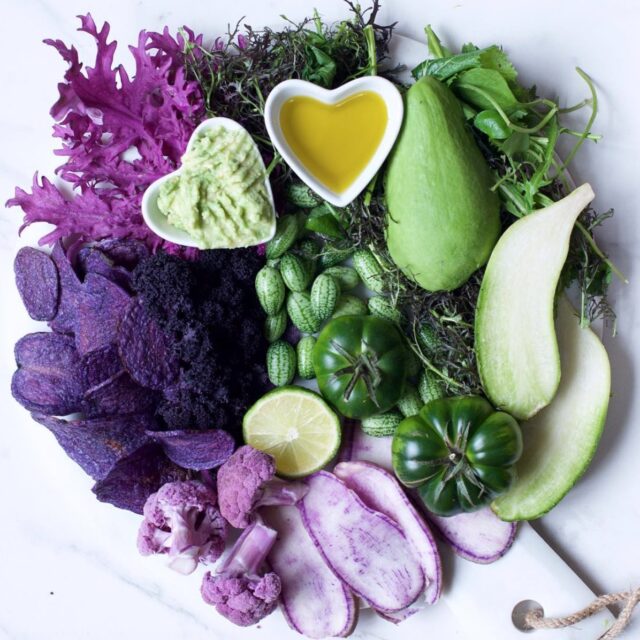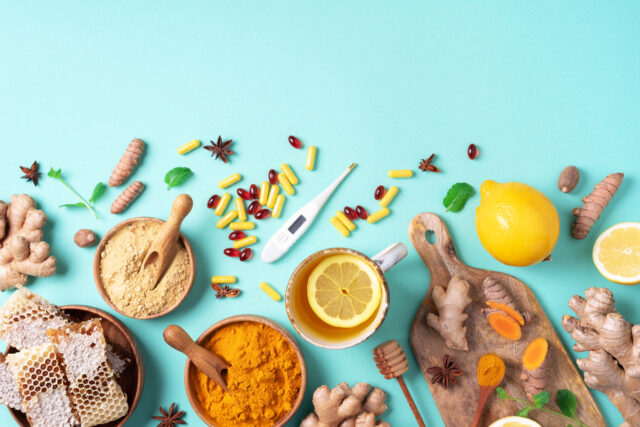
By Tapp Francke Ingolia, MS
They may be the most helpful squatters in history. Pre-, pro- and postbiotics are buzzwords in the health world. And for good reason! These microbes, which call our bodies home, are acquired throughout our lifetime—by touching, breathing and eating—are essential for our health and well-being. From balancing our mood, to supporting our immune system, to producing anti-inflammatory metabolites, these fantastic flora are responsible for many components of who we are and how our bodies run. In fact, in some ways we are more microbe than we are human. Our bodies are host to about 100 trillion bacterial cells of 10,000 different species. Though only weighing about 3 pounds, our microbial population accounts for the vast majority of our unique genes. In fact, our microbial cells outnumber our human cells by 10 to 1. Genetically, we are outnumbered 360 to 1. The presence, or absence, of these microbes can determine the status of our health.
Over the past 50 years, the diversity of the microbial populations in our gut has been declining. Dr. Martin J. Blaser, in his book Missing Microbes, says that the current rise in chronic and inflammatory diseases like Crohn’s disease, type 1 diabetes, allergies and celiac disease, as well as mood disorders like anxiety and depression, may be due in part to the decline in this protective microbial population. Blaser explains that the use of antibiotics as well as other medications like birth control pills, proton-pump inhibitors and laxatives can all negatively impact the health and diversity of our microbiome. Pesticides and fungicides in our food, as well as plain old-fashioned stress, can also down-regulate this delicate system. Additionally, the standard American diet is woefully insufficient in the types of foods that allow the microbiome to bloom, which results in hindered immune function and mood instability.
So, what can we do? Beyond being conscious about our food and medicine choices, we can bolster our microbiome with probiotics, cultured foods and a little love. Think of your microbiome like a garden: If you tend to it properly, it will grow. Here’s a handy guide to understanding each of the “biotics”:

Probiotics: These are the good guys—the microbes. The greatest breadth of microbial diversity can be found in naturally fermented food products. This means cultured foods like yogurt, kefir, sauerkraut, kombucha and pickles. Make sure that these foods are brined in salt and not vinegar to ensure that they are rich in live bacteria. If something is pickled in vinegar, then it will taste pickled, but will not have the microbial benefit that real fermented foods have. Good bacteria can also be found in probiotic supplements. If you go this route, make sure to change your probiotics often in order to ensure proper microbial diversity. If you take the same probiotic supplement over and over, it will create monoculturing, which means the overgrowth of specific strains. The goal here is diversity.
Prebiotics: Think of prebiotics as food or fertilizer for your microbiome. Prebiotics are fibers found in fruits like watermelon and grapefruit, vegetables like asparagus, garlic, onion and cauliflower, as well as beans like chickpeas and lentils, whole grains like barley and oats, and nuts like almonds and pistachios. These foods all help the “good guys” to grow and prosper. The presence of these beneficial foods in our diet determines the health of our microbial friends.
Postbiotics: These metabolites are a byproduct of the metabolic process of our microbes breaking down the prebiotic fibers. This process produces helpful compounds like vitamins B and K, anti-inflammatory short-chain fatty acids like butyrate and acetate, and neurotransmitters such as GABA and serotonin. This process requires both the presence of pre- and probiotics in order to occur.
Our microbes are our friends—maybe even our best friends. They help us in ways that most of us are not even aware of. Eating a whole-food diet rich in probiotic and prebiotic foods will ensure their health and stability. Love your gut, and it will love you back. standwellness.com





